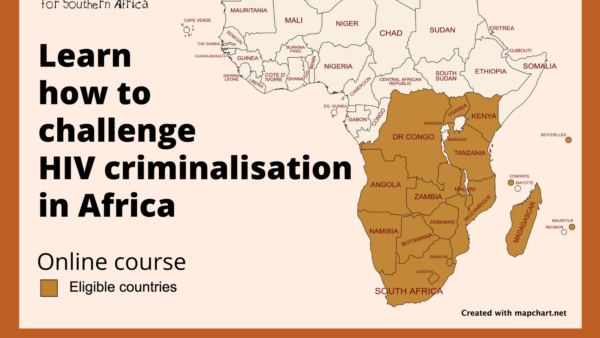Overview
Eswatini (formerly known as Swaziland) does not have an HIV-specific criminal law. A draft of the Sexual Offences and Domestic Violence Bill initially required disclosure of HIV status between sex partners, but the provision did not make it into the final Sexual Offences and Domestic Violence Act 2018. The Act does include a constructive provision (section 70) which makes it the duty of a police officer dealing with a victim of a sexual offence to refer them for support and “in particular, the availability of Post Exposure Prophylactics”.
HIV Justice Network also understands that in 2017, the proposed Public Health Bill (to supersede the Public Health Act No. 5 of 1960) was intended to criminalise ‘wilful transmission of sexually transmitted diseases’ but current content of the Bill is not known.
There have been no reported cases of HIV criminalisation in Eswatini to date.
Further resources
Academic paper outlining legal responses to HIV in Eswatini (formerly Swaziland)
Reviews HIV-related laws, policies and practices in Swaziland. It analyses international, regional and national human rights obligations against national HIV-related laws, policies and practices as implemented by the country’s legislative framework and programmatic response to HIV and to populations affected by HIV. It furthermore investigates Swaziland’s commitment to protecting the rights of and creating an environment that reduces vulnerability for people living with HIV (PLHIV) and for key populations at higher risk of HIV exposure and makes recommendations.
HIV Justice Network's Positive Destinations
Visit the Eswatini (Swaziland) page on Positive Destinations for information on regulations that restrict entry, stay, and residency based on HIV-positive status, as well as access to HIV treatment for non-nationals.
